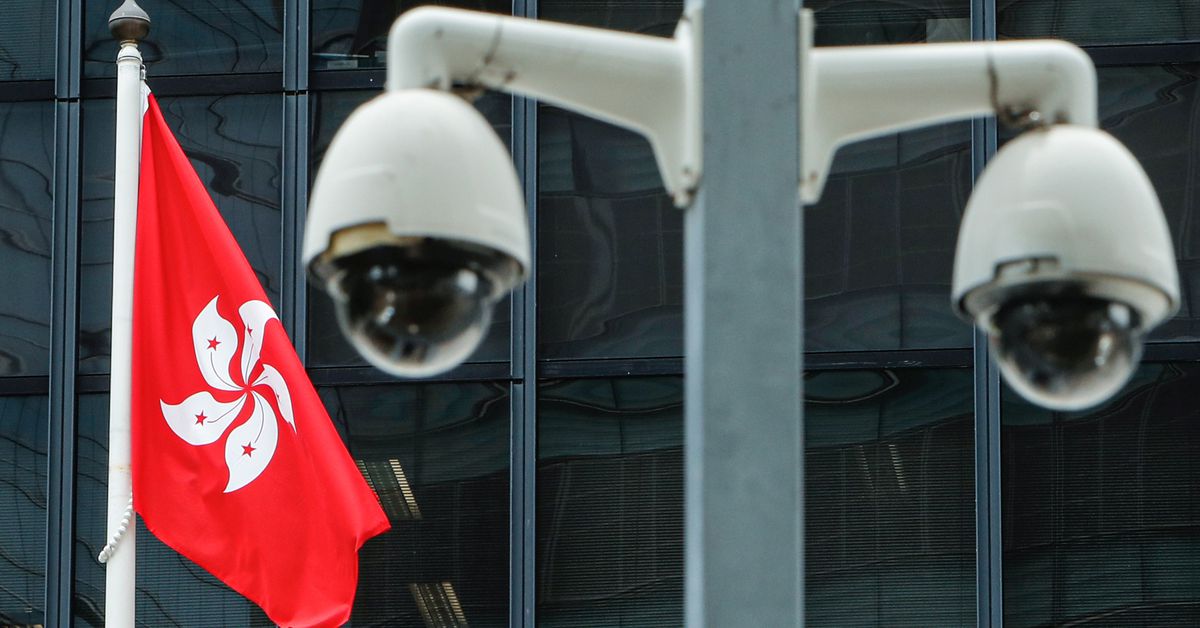Hong Kong proposes film censorship law to ‘safeguard national security’

A Hong Kong flag is flown behind a pair of surveillance cameras outside the Central Government Offices in Hong Kong, China July 20, 2020. REUTERS/Tyrone Siu
HONG KONG, Aug 24 (Reuters) – Hong Kong said on Tuesday new film censorship legislation will be introduced to “safeguard national security”, in another sign of shrinking freedoms in the former British colony.
China introduced a sweeping national security law in June last year to crack down on what it deems subversion, secessionism, terrorism and collusion with foreign forces, following months of sometimes violent pro-democracy protests in 2019.
The new “film censorship” amendment bill will help enhance the regulatory framework, the government said in a statement, with a view to “ensuring more effective fulfilment of the duty to safeguard national security”.
“The main reference is the national security law … for instances, acts or activities which might endorse, support, glorify, encourage and incite such activities that might endanger national security,” Edward Yau, Hong Kong’s commerce secretary, told reporters.
Hong Kong’s number two official, the chief secretary, will also be empowered to revoke a film’s licence if found to be “contrary to the interests of national security”.
Those who violate the law could sentenced to three years imprisonment and fined HK$1 million ($128,400).
The bill will be put to the city’s Legislative Council next Wednesday.
Hong Kong introduced new film censorship guidelines in June to ban films perceived as promoting or glorifying acts which may endanger national security. read more
Hong Kong returned to Chinese rule in 1997 with the promise its wide-ranging freedoms, including freedom of expression, would remain intact. Beijing and Hong Kong authorities have repeatedly denied curbing human rights and freedoms.
The move comes after recent cancellations of a number of screenings of protest-related films and documentaries at cinemas and art centres.
A documentary called “Taiwan Equals Love” on Taiwan’s gay marriage debate was pulled in June, after the Film Censorship Authority refused to approve its full screening. China considers self-ruled Taiwan a breakaway province.
The Cannes Film Festival screened a new documentary titled “Revolution of Our Times”, which chronicles the 2019 protests, by filmmaker Kiwi Chow as a surprise addition in July, read more
Chow said he doesn’t plan to screen it in Hong Kong given previous censorship guidelines announced in June.
Reporting by Jessie Pang; Editing by James Pomfret and Nick Macfie
Our Standards: The Thomson Reuters Trust Principles.






